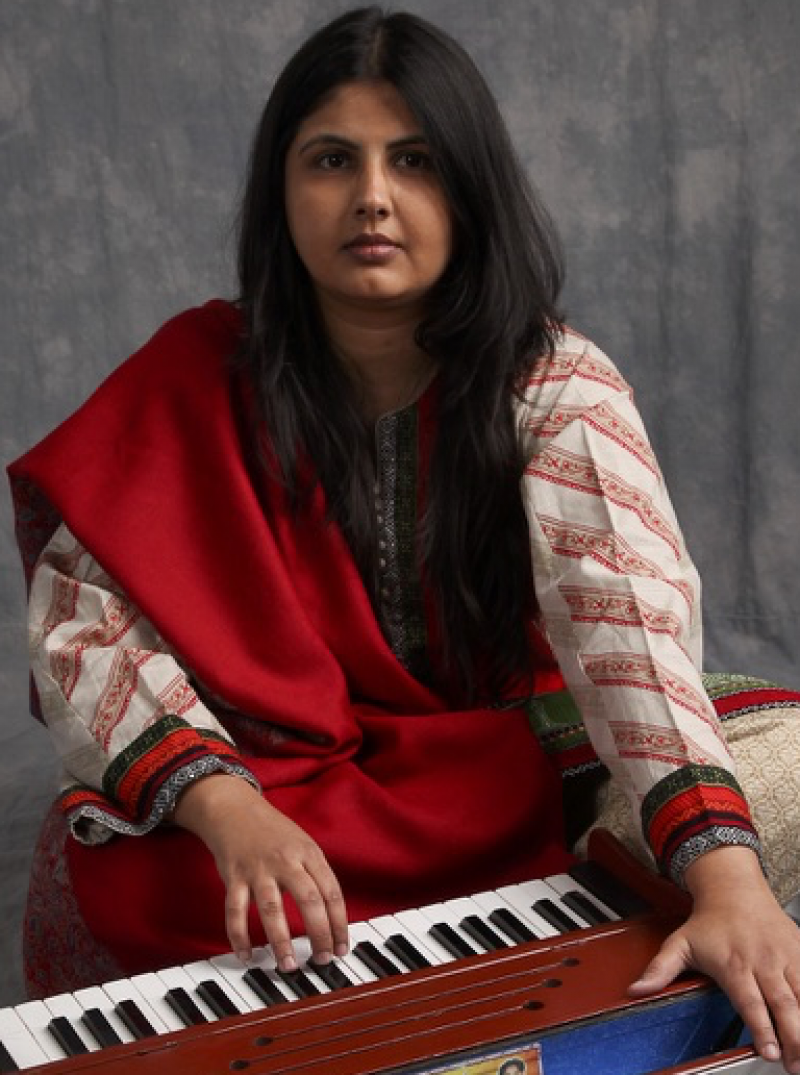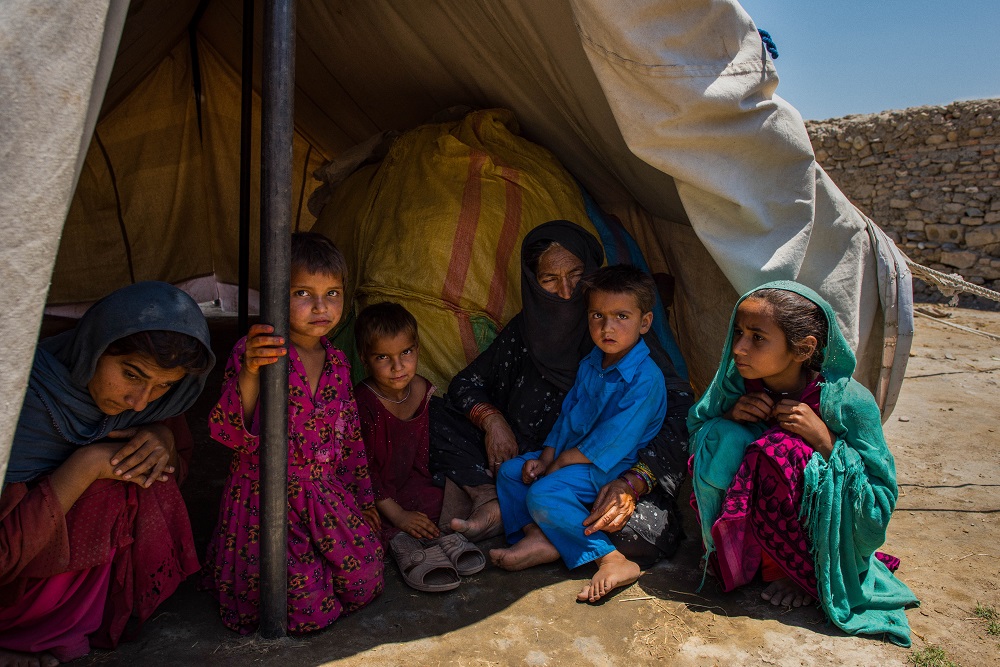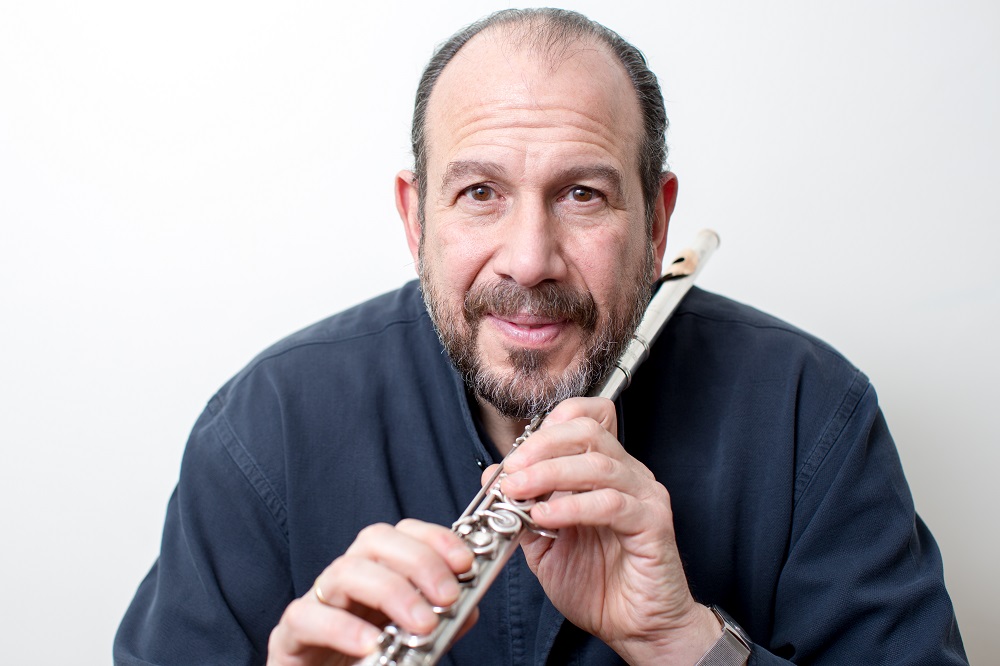First Person: ethnomusicologist Shumaila Hemani on global musical traditions and Concert for Afghanistan | reviews, news & interviews
First Person: ethnomusicologist Shumaila Hemani on global musical traditions and Concert for Afghanistan
First Person: ethnomusicologist Shumaila Hemani on global musical traditions and Concert for Afghanistan
No boundaries between east and west, north and south, in tonight's live music-making

In early 2020, the year that soon saw COVID-19 lockdown, I served on the music faculty for Semester at Sea, Spring 2020 voyage, where I taught self-designed courses on global music cultures as well as a course called Soundscapes.
The study of ethnomusicology focuses on music in its cultural context. Typically, an ethnomusicological approach departs from and resists scholarly approaches in studying western art music traditions that have in the past overly focused on composers’ intentions and playing music with the score. Ethnomusicologists bring forward the study of oral traditions and folk, art, and new music traditions of the world through cultural immersion and fieldwork. Ethnomusicology stands as a minority discipline within the Music Departments and serves to de-centralise approaches to western art music found in disciplines such as music composition, performance, music theory, and musicology.
Knowledge of western art music or lack thereof, however, continues to make one a “fit” or “unfit” member of the elite graduate student or faculty within music departments. In 2010, I became one of the first students from Pakistan to enter Harvard University’s prestigious Ph.D. programme in music, but given that I was unable to grasp two books of advanced music theory assigned by the proctor within the summer break of my first year, I was asked to leave, on the basis that Harvard cannot offer “remedial courses” in Western art music. Even after completing my doctorate in music from the University of Alberta in 2019, as an early-career scholar and prospective tenure-track faculty, my research continues to get rejected for publication because it does not speak the language of western art music.
Yet, despite its colonial role historically, when one sees how the subject of my thesis is being put to use to advocate for people in crisis, perhaps it indicates a way forward for western art music practitioners to absolve their historical burden of hegemonizing musical cultures.  Following the recent surge in conflict and instability in Afghanistan, impacting the lives of the country’s entire population, world-renowned musicians and humanitarian charity the International Rescue Committee (IRC) is organizing a concert for Afghanistan tonight (Friday 22 October) at 19.30 BST, at St James’s Church in Piccadilly, London. It will also be live-streamed globally via concertforafghanistan.com.
Following the recent surge in conflict and instability in Afghanistan, impacting the lives of the country’s entire population, world-renowned musicians and humanitarian charity the International Rescue Committee (IRC) is organizing a concert for Afghanistan tonight (Friday 22 October) at 19.30 BST, at St James’s Church in Piccadilly, London. It will also be live-streamed globally via concertforafghanistan.com.
During my course lectures for Soundscapes, my students studied The Cambridge Companion to World Music edited by Professor Philip Bohlman and discussed how western art music became institutionalized in parts of East Asia and other ports on our voyage. The military bands have been one of the agents of disseminating western musical instruments and repertoire in many parts of the non-European world. Students left my courses understanding power differentials across north and south by learning about global musical traditions and histories. They question simplified categories such as “east” and “west” and the dangers of viewing a particular culture through a single narrative towards appreciating history as a situated narrative told from the lens of multiple actors. They had the tools to approach the complexity of cultural change as well as a critical lens to recognize the agency and creative choices of people of the south.
Since this concert presents musicians of the north advocating for Afghan musicians in the south who have been impacted by the Taliban ban on music, it is significant to remember that Afghans have the agency to transform their future, and that the help that they require in this moment of crisis is also the result of neglect that they have experienced after the sudden fall of Kabul. Here the work of the International Rescue Committee is important as it responds to the world’s worst humanitarian crises, helping to restore health, safety, education, economic wellbeing, and power to people devastated by conflict and disaster.
The programme for the concert for Afghanistan will include Debbie Wiseman’s To Help, an anthem specially arranged for this concert; Bach’s Concerto for Oboe and Violin in D Minor, Marcello’s Oboe Concerto in D mminor, and two works by Mozart: the First Flute Concerto and the Symphony No. 40. The soloists are Nicholas Daniel, Alina Ibragimova, and Wissam Boustany (pictured below).  Even though we do not see any Afghan musicians participating in this event, the donations from this concert will support IRC’s trauma-sensitive gender-based counselling service for women and girls in Afghanistan and pave the way for Afghans to take back their power that has been hijacked by the Taliban. Introducing the de-colonizing paradigm in the crisis intervention work is significant, and we will hear the voices of IBPOC artists and scholars, including Dr. Ahmad Sarmast, the Director of the National Institute of Music, who will be one of the speakers alongside David Miliband. Director Enrico Alvares’ touching words strengthen the significant humanitarian cause of this concert:
Even though we do not see any Afghan musicians participating in this event, the donations from this concert will support IRC’s trauma-sensitive gender-based counselling service for women and girls in Afghanistan and pave the way for Afghans to take back their power that has been hijacked by the Taliban. Introducing the de-colonizing paradigm in the crisis intervention work is significant, and we will hear the voices of IBPOC artists and scholars, including Dr. Ahmad Sarmast, the Director of the National Institute of Music, who will be one of the speakers alongside David Miliband. Director Enrico Alvares’ touching words strengthen the significant humanitarian cause of this concert:
All performers and helpers are giving their services free of charge…Everyone in this concert – whether performer, helper, listener physically present in the venue or virtually present via streaming – is part of an event based entirely on love for one’s fellow humans. You will hear that in every note, I guarantee it.
Explore topics
Share this article
The future of Arts Journalism
You can stop theartsdesk.com closing!
We urgently need financing to survive. Our fundraising drive has thus far raised £49,000 but we need to reach £100,000 or we will be forced to close. Please contribute here: https://gofund.me/c3f6033d
And if you can forward this information to anyone who might assist, we’d be grateful.

Subscribe to theartsdesk.com
Thank you for continuing to read our work on theartsdesk.com. For unlimited access to every article in its entirety, including our archive of more than 15,000 pieces, we're asking for £5 per month or £40 per year. We feel it's a very good deal, and hope you do too.
To take a subscription now simply click here.
And if you're looking for that extra gift for a friend or family member, why not treat them to a theartsdesk.com gift subscription?
more Classical music
 BBC Proms: Ehnes, Sinfonia of London, Wilson review - aspects of love
Sensuous Ravel, and bittersweet Bernstein, on an amorous evening
BBC Proms: Ehnes, Sinfonia of London, Wilson review - aspects of love
Sensuous Ravel, and bittersweet Bernstein, on an amorous evening
 Presteigne Festival 2025 review - new music is centre stage in the Welsh Marches
Music by 30 living composers, with Eleanor Alberga topping the bill
Presteigne Festival 2025 review - new music is centre stage in the Welsh Marches
Music by 30 living composers, with Eleanor Alberga topping the bill
 Lammermuir Festival 2025 review - music with soul from the heart of East Lothian
Baroque splendour, and chamber-ensemble drama, amid history-haunted lands
Lammermuir Festival 2025 review - music with soul from the heart of East Lothian
Baroque splendour, and chamber-ensemble drama, amid history-haunted lands
 BBC Proms: Steinbacher, RPO, Petrenko / Sternath, BBCSO, Oramo review - double-bill mixed bag
Young pianist shines in Grieg but Bliss’s portentous cantata disappoints
BBC Proms: Steinbacher, RPO, Petrenko / Sternath, BBCSO, Oramo review - double-bill mixed bag
Young pianist shines in Grieg but Bliss’s portentous cantata disappoints
 theartsdesk at the Lahti Sibelius Festival - early epics by the Finnish master in context
Finnish heroes meet their Austro-German counterparts in breathtaking interpretations
theartsdesk at the Lahti Sibelius Festival - early epics by the Finnish master in context
Finnish heroes meet their Austro-German counterparts in breathtaking interpretations
 Classical CDs: Sleigh rides, pancakes and cigars
Two big boxes, plus new music for brass and a pair of clarinet concertos
Classical CDs: Sleigh rides, pancakes and cigars
Two big boxes, plus new music for brass and a pair of clarinet concertos
 Waley-Cohen, Manchester Camerata, Pether, Whitworth Art Gallery, Manchester review - premiere of no ordinary violin concerto
Images of maternal care inspired by Hepworth and played in a gallery setting
Waley-Cohen, Manchester Camerata, Pether, Whitworth Art Gallery, Manchester review - premiere of no ordinary violin concerto
Images of maternal care inspired by Hepworth and played in a gallery setting
 BBC Proms: Barruk, Norwegian Chamber Orchestra, Kuusisto review - vague incantations, precise laments
First-half mix of Sámi songs and string things falters, but Shostakovich scours the soul
BBC Proms: Barruk, Norwegian Chamber Orchestra, Kuusisto review - vague incantations, precise laments
First-half mix of Sámi songs and string things falters, but Shostakovich scours the soul
 BBC Proms: Alexander’s Feast, Irish Baroque Orchestra, Whelan review - rapturous Handel fills the space
Pure joy, with a touch of introspection, from a great ensemble and three superb soloists
BBC Proms: Alexander’s Feast, Irish Baroque Orchestra, Whelan review - rapturous Handel fills the space
Pure joy, with a touch of introspection, from a great ensemble and three superb soloists
 BBC Proms: Moore, LSO, Bancroft review - the freshness of morning wind and brass
English concert band music...and an outlier
BBC Proms: Moore, LSO, Bancroft review - the freshness of morning wind and brass
English concert band music...and an outlier
 Willis-Sørensen, Ukrainian Freedom Orchestra, Wilson, Cadogan Hall review - romantic resilience
Passion, and polish, from Kyiv's musical warriors
Willis-Sørensen, Ukrainian Freedom Orchestra, Wilson, Cadogan Hall review - romantic resilience
Passion, and polish, from Kyiv's musical warriors
 BBC Proms: Faust, Gewandhausorchester Leipzig, Nelsons review - grace, then grandeur
A great fiddler lightens a dense orchestral palette
BBC Proms: Faust, Gewandhausorchester Leipzig, Nelsons review - grace, then grandeur
A great fiddler lightens a dense orchestral palette

Add comment